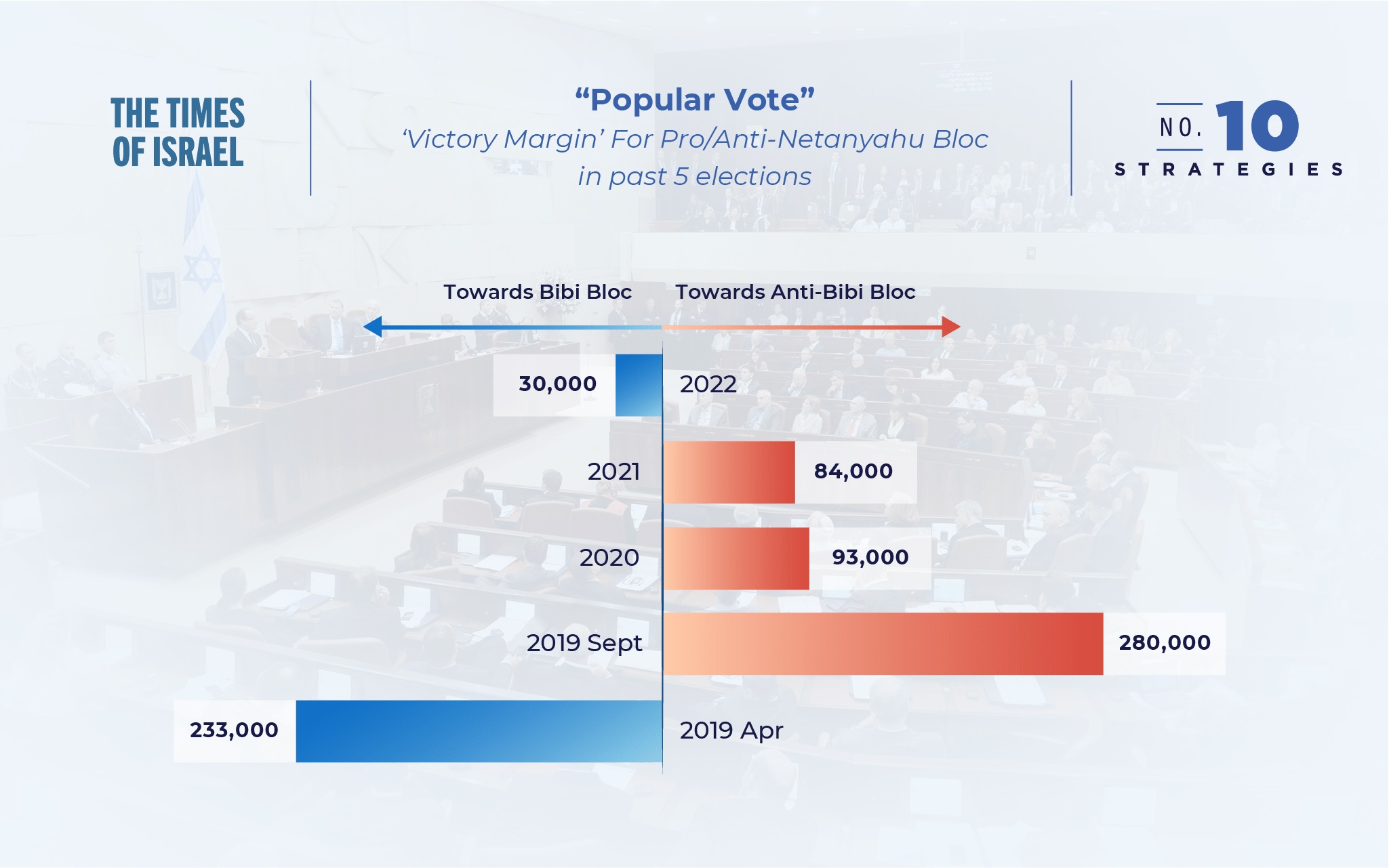Subtle Cheers for Netanyahu!
January 7, 2023 | Expert Insights

For a nation the size of Israel, its political fractiousness has surpassed even much bigger nations in terms of continuous political gridlock and instability.
Israel conducted its fifth general election in four years in which the former prime minister Benjamin Netanyahu led his coalition of far-right lawmakers and groups to victory even as allegations of corruption lingered on.
Will Netanyahu be able to bring long due stability to Israeli politics is something we have to wait and see. He is fighting against headwinds as he leads a coalition that includes two ultra-Orthodox parties, a hard-line religious ultranationalist party headed by settlers from the West Bank, and his own nationalist Likud party!
Background
Netanyahu won a comeback after more than a year in opposition. In a revolving door political climate, with governments changing frequently, the Israeli people have lost patience with their politicians, ruled by patchwork cabinets led by Naftali Bennett and Yair Lapid, and back to Netanyahu, the embodiment of a political eternal.
Netanyahu served as prime minister for the most extended period, from 2009 to 2021 and for a brief period in the 1990s. After four unsuccessful elections, he was removed from office by an alliance of eight parties that were only united in opposition to his leadership while he was on trial for corruption.
The alliance established in March 2021 was a cumbersome eight-party behemoth with many truly unusual allies: right-wing West Bank settlers, the far-left, and for the first time in Israeli politics, an Arab Party. These allies were united by little more than the desire to keep Netanyahu from office. However, that coalition disintegrated in June 2022 due to internal inconsistencies, making way for Netanyahu's comeback.
Previous Netanyahu administrations have been ardent supporters of Israel's West Bank settlement activity, and it is anticipated that this support will intensify under the new administration. Looking at history, the West Bank, the Gaza Strip, and East Jerusalem were all seized by Israel in 1967, territories the Palestinians desire for a future state and hence the point of eternal contention.

Analysis
Netanyahu is in a position to deliver a more stable government with the support of a sizeable majority and a homogenous composition than those produced in recent years in the Knesset. However, his detractors call his victory a danger to Israel's democratic traditions and its ties to the Middle East and the rest of the globe. The fact that he might establish a lasting regime makes the moderates even warier in the future.
Most worrying is the efforts of the new administration to limit the Supreme Court's authority, mainly through legislation allowing Parliament to overrule Supreme Court decisions. This would increase the political majority's unrestrained authority and diminish the power of the impartial jury. In a nation which only has a codified constitution, the judiciary has played a crucial role in protecting minority rights. It has ensured that the high and mighty are accountable for their misdemeanours, with the threat of conviction on corruption charges hanging over Mr Netanyahu as a prime example.
Along the way, Netanyahu was compelled to offer hefty concessions to allies, such as a promise to increase West Bank settlements, a plan to legalize discrimination against LGBTQ individuals, and an increase in financial aid for ultra-Orthodox men who wish to pursue education instead of employment. Additionally, he has pledged to "neutralize" a recent maritime deal with Lebanon about natural gas rights in the Mediterranean that was recently achieved. Israel and Lebanon have technically been at war since 1948. Still, they haven't reached an agreement on their shared border, so the accord was hailed as a significant diplomatic victory by Lapid's office and the Biden administration, which helped arrange it.
The most significant foreign policy accomplishment of Netanyahu's prior administration, the Abraham Accords, might be easily undermined by the current administration's internal policies. Israel's political isolation in the Middle East has dramatically decreased with the normalization of relations with the Gulf nations, which has also established the groundwork for extensive political, economic, and security cooperation. It will be more challenging for Israel to maintain the backing of the Arab Gulf if Netanyahu gives the right-wing groups too much territory.
Israel has already lost a lot of political support in Europe due to Netanyahu's harsh actions over the years. Since Netanyahu's relationships with U.S. Democrats have traditionally been strained, the Biden administration will be apprehensive of his return to power. The reversal of collaboration with the Arabs and Israel's domestic democratic backsliding might make things worse for Washington.
It might not be business as usual with Israel for India, despite the close personal rapport between the two leaders. Prime Minister Narendra Modi congratulated Netanyahu following his victory. Still, Delhi must be prepared to gently remind him not to impair relations with the Arab Gulf, where India's geopolitical and economic assets have significantly increased in recent years.
Assessment
- If these plans are implemented, it will cause Israel to lose the support of its inhabitants, increase the likelihood of conflict with the Palestinians, and put Israel at odds with some of its key allies, including the United States government and the Jewish community in America.
- The impact will be significant for Palestinians living in Israel because of the rise in racial hatred. The government already plans to have fewer Palestinians, more Jewish settlers, and Israeli Jews.
- Given the number of illicit weapons inside the Green Line and the ideological disparity among Israelis regarding their ideal state, the country may need to prepare for the possibility of intra-Jewish-Israeli conflict.








Comments